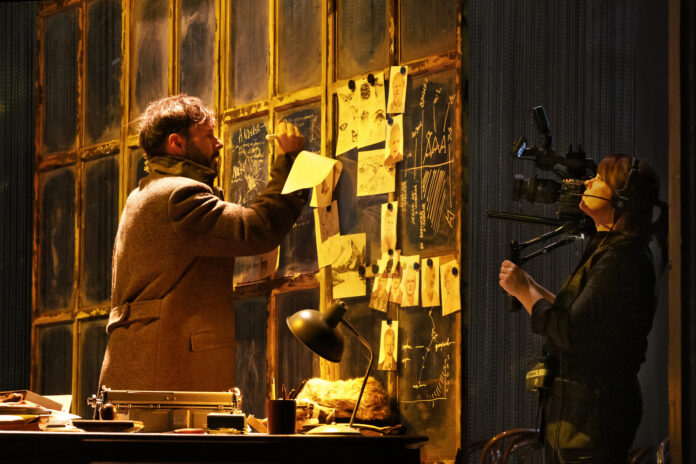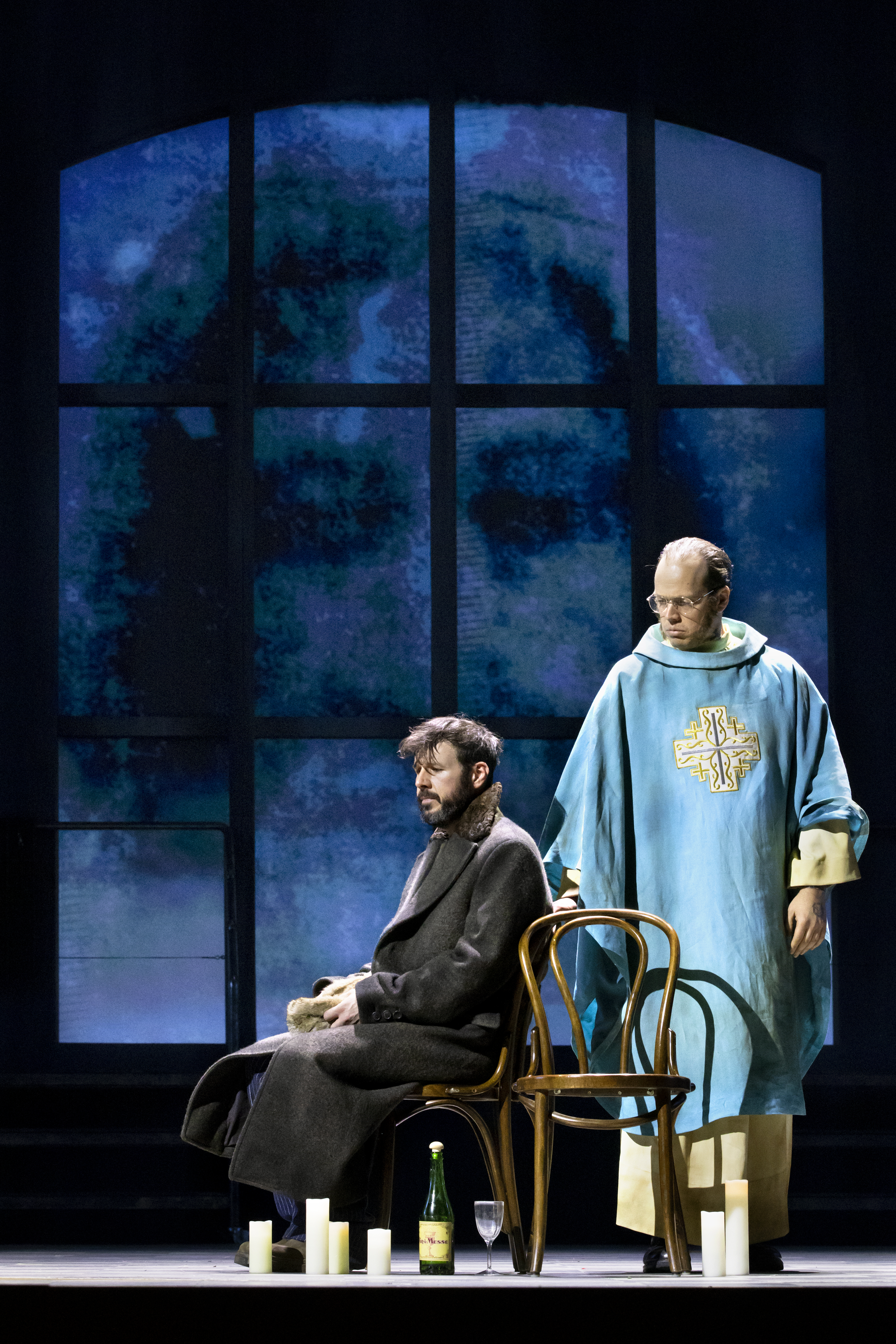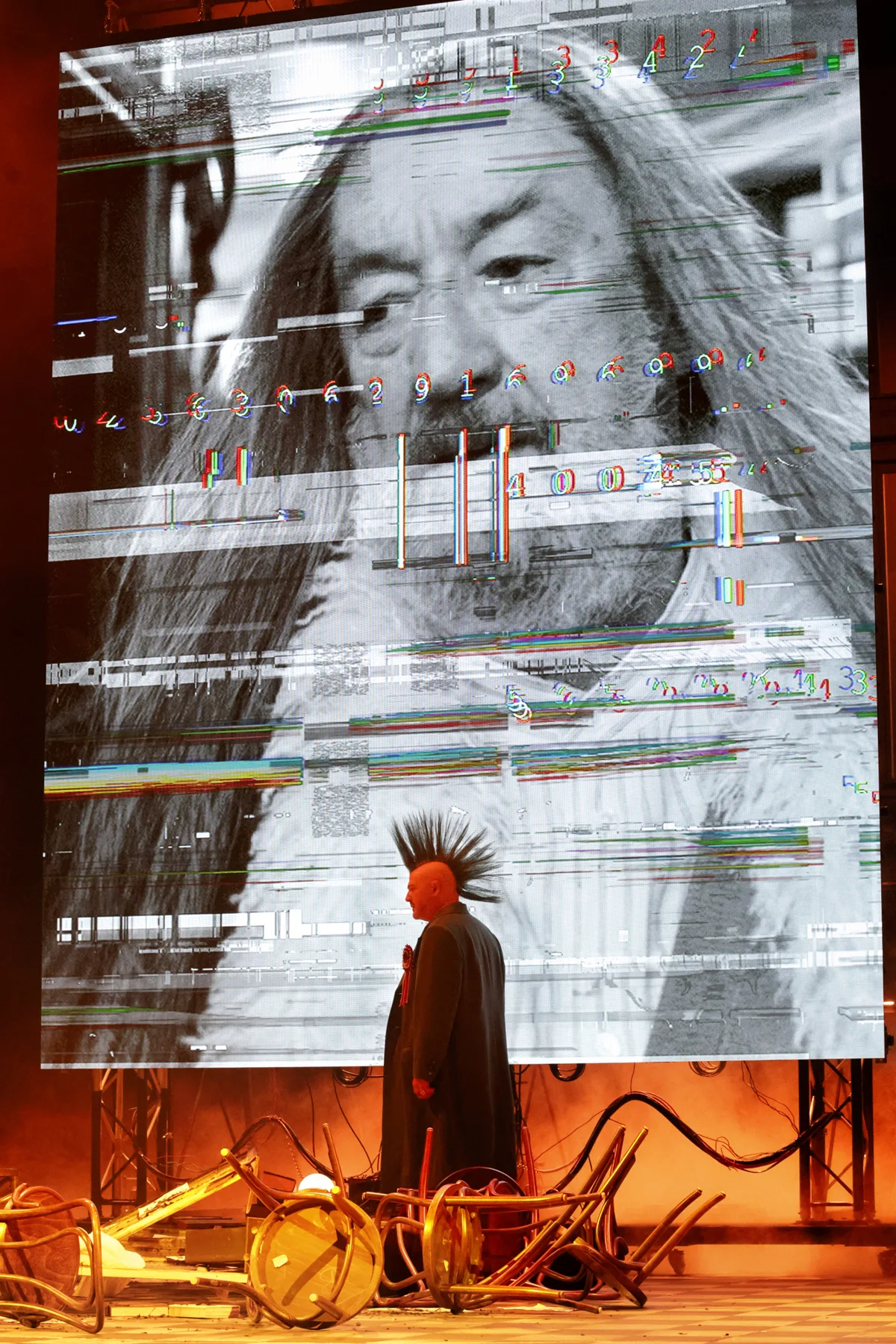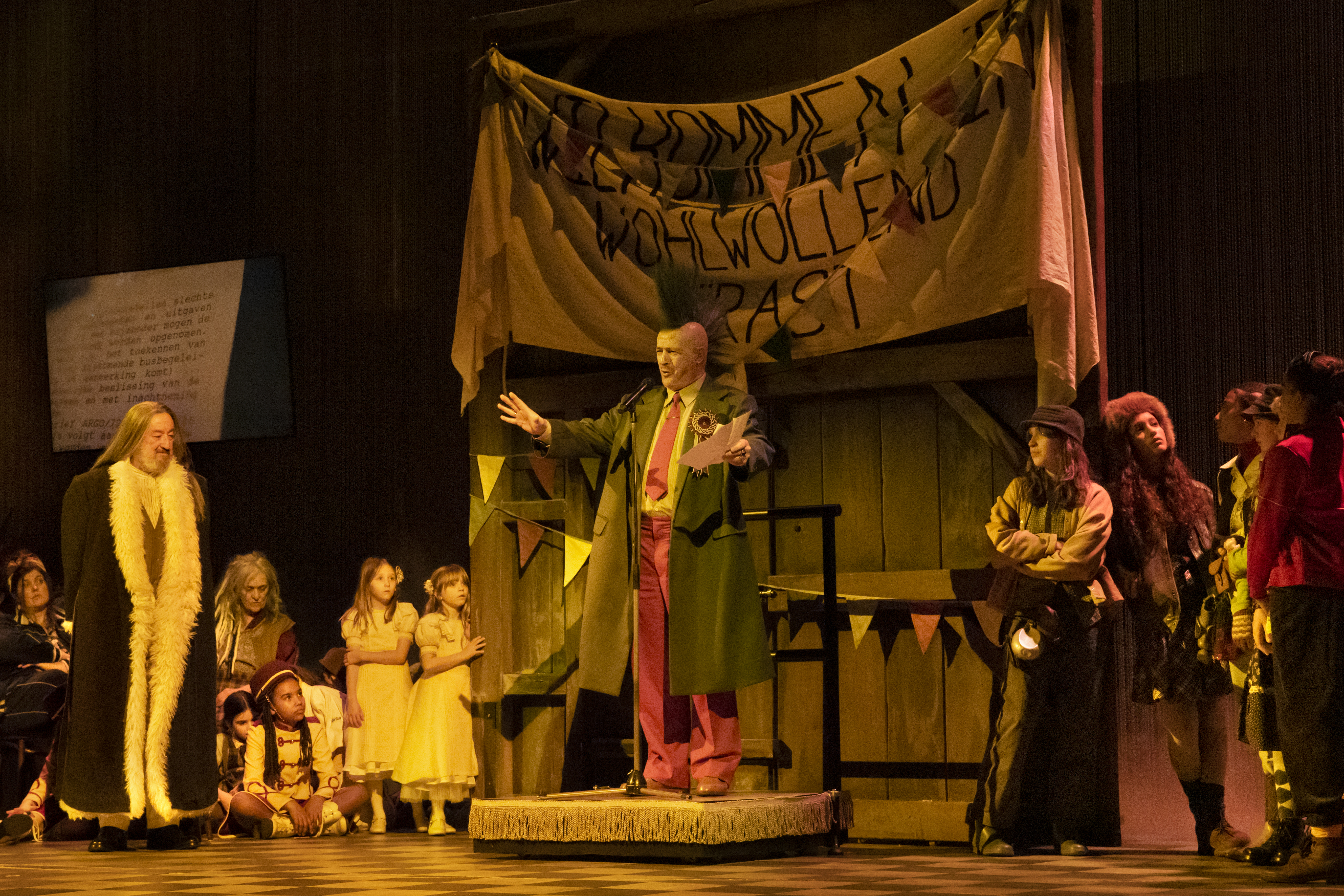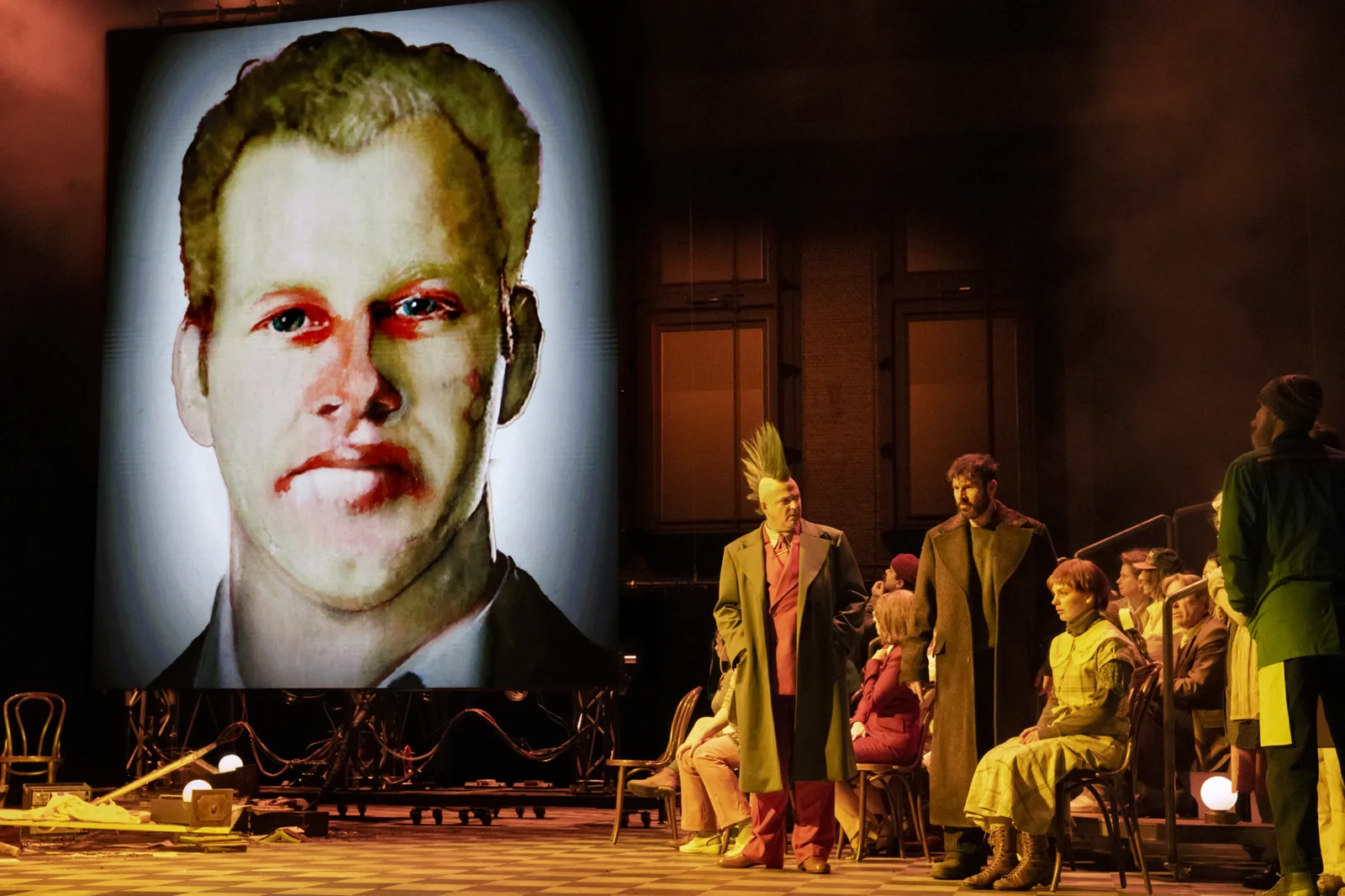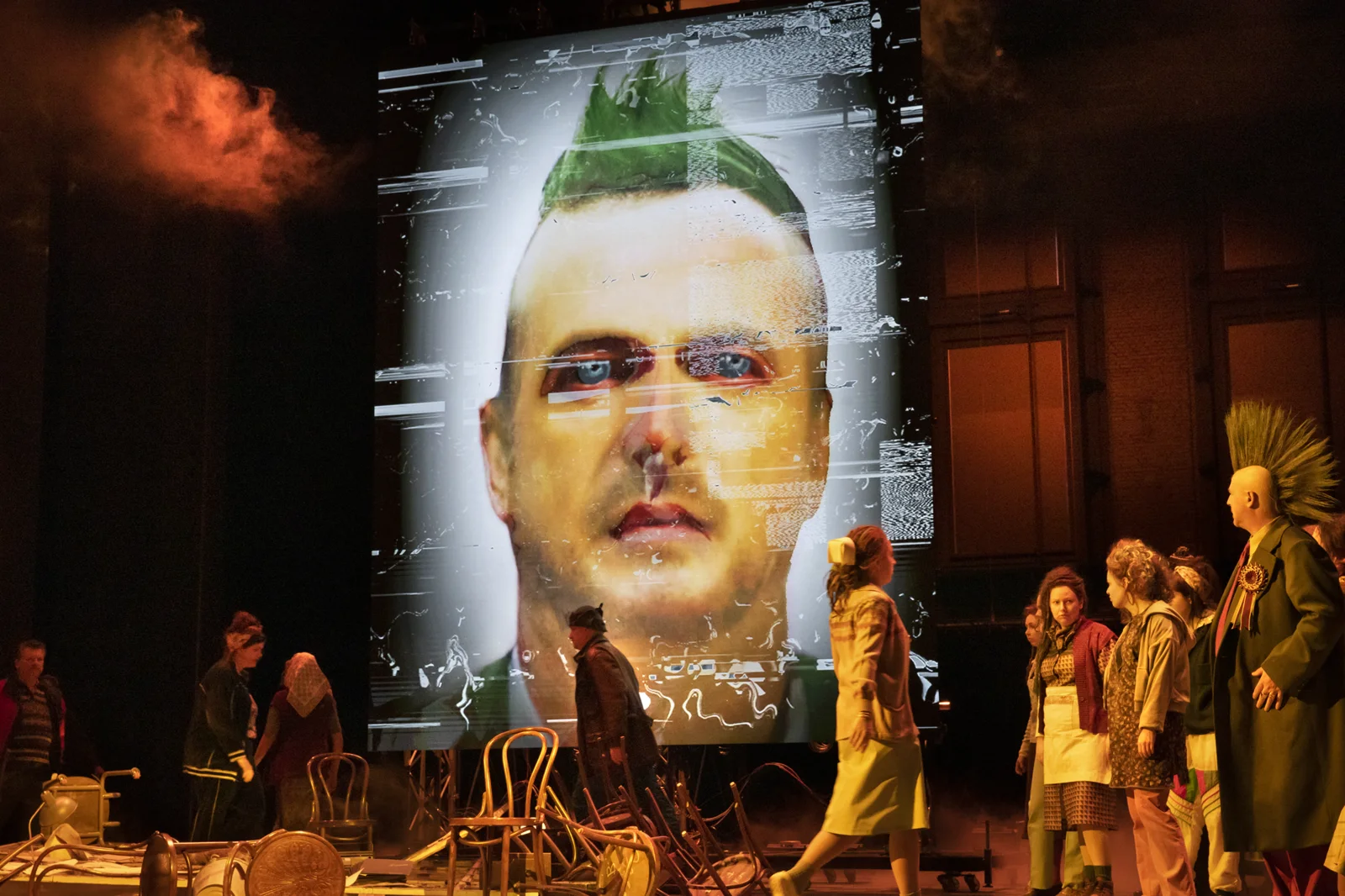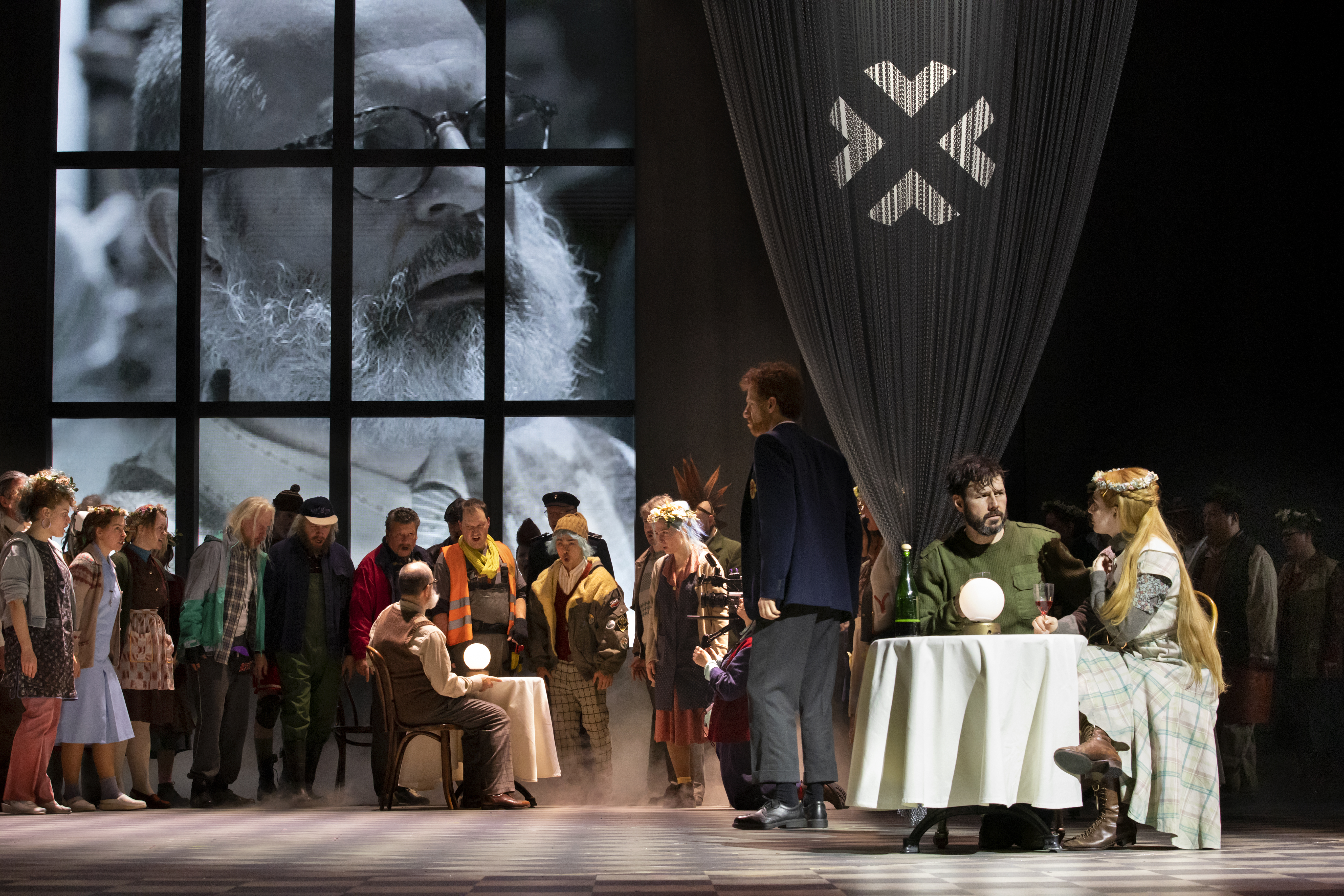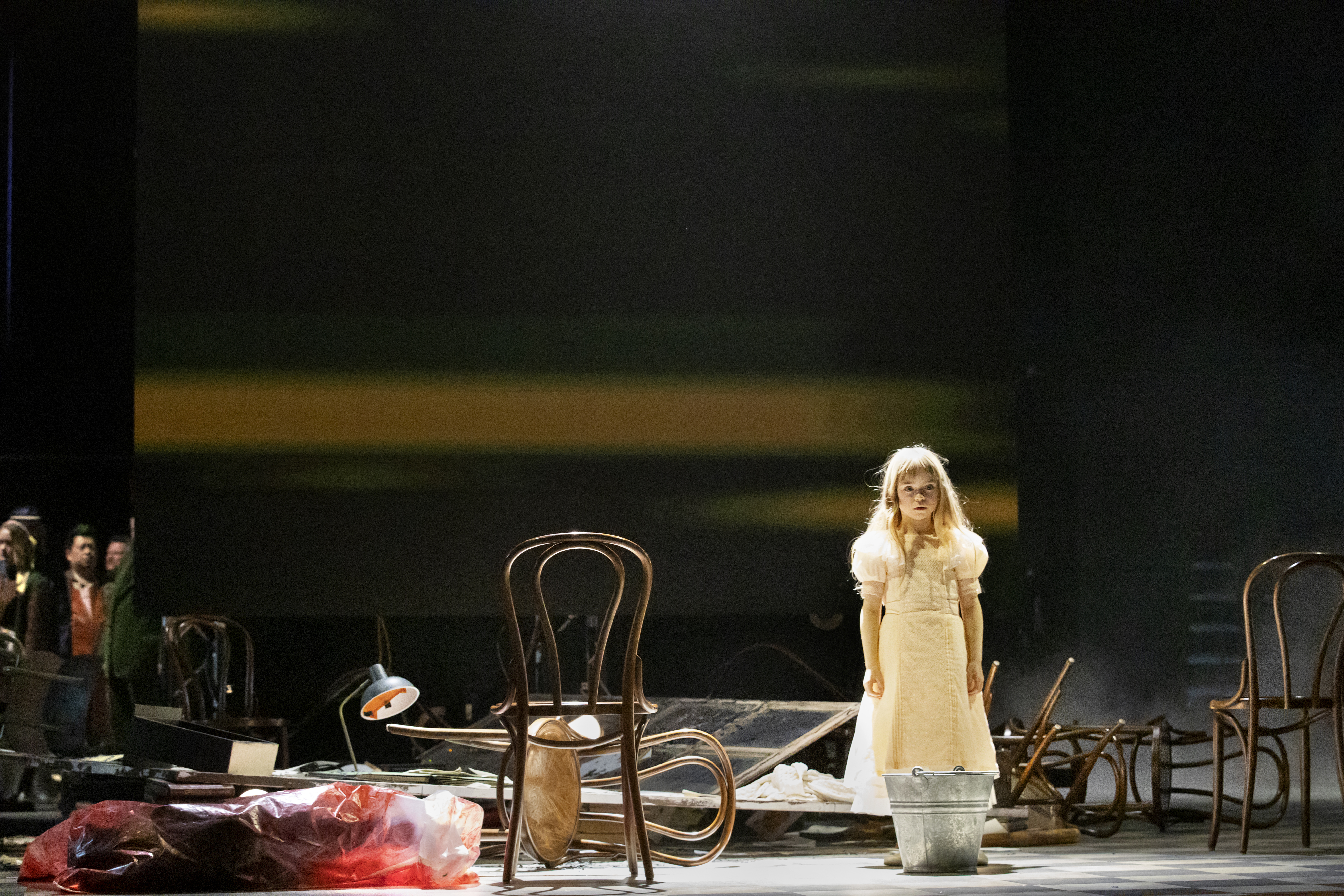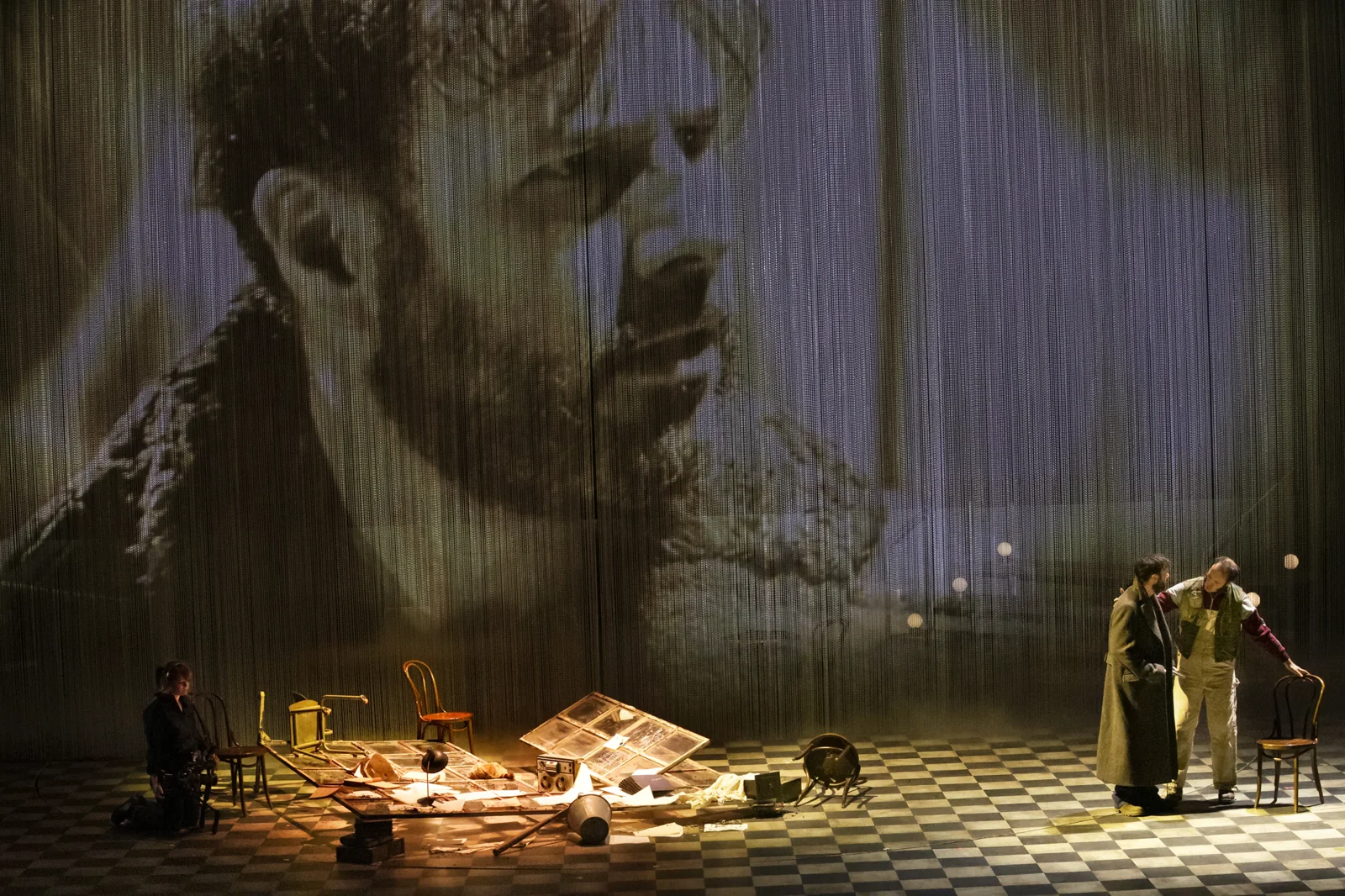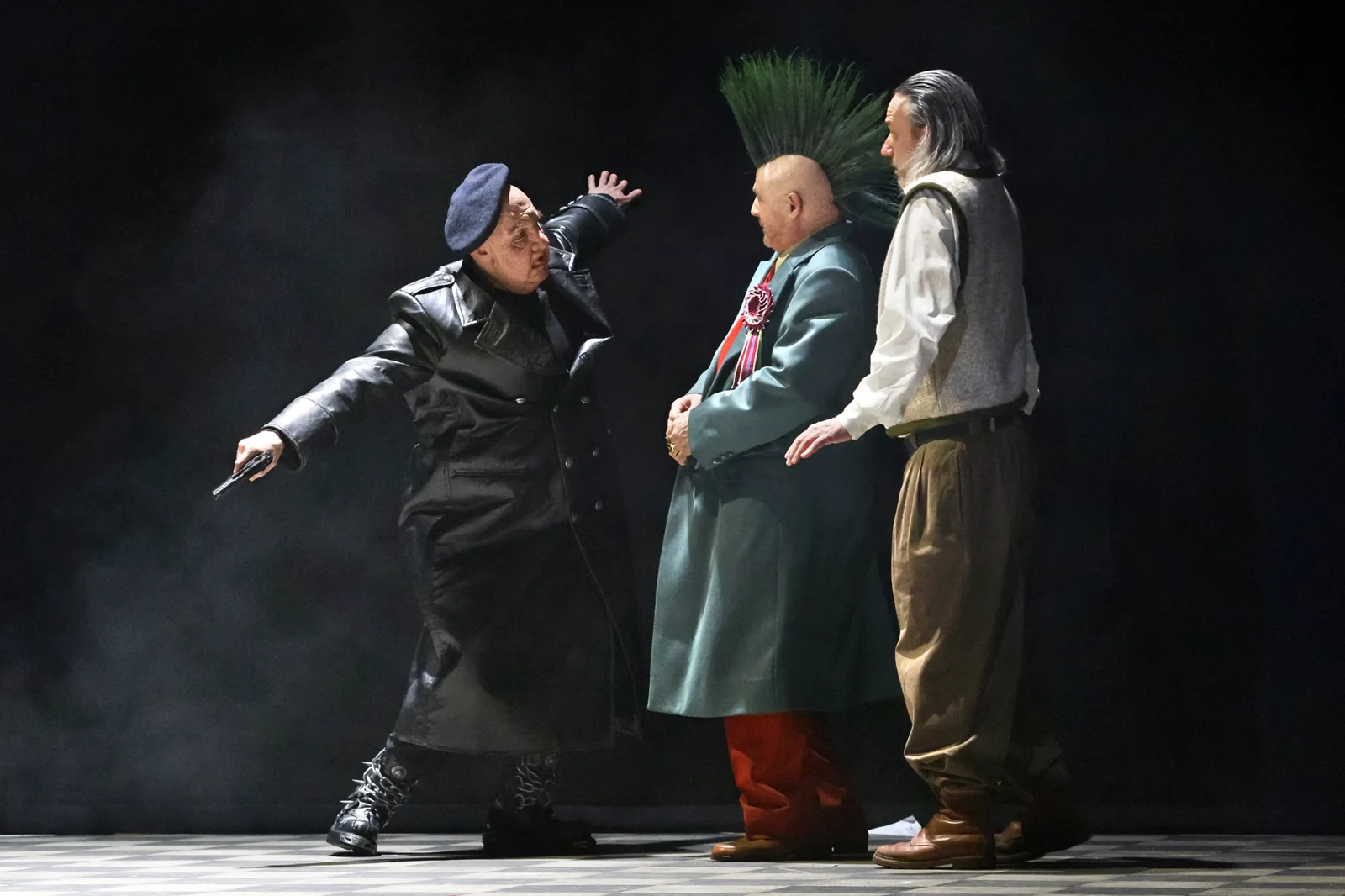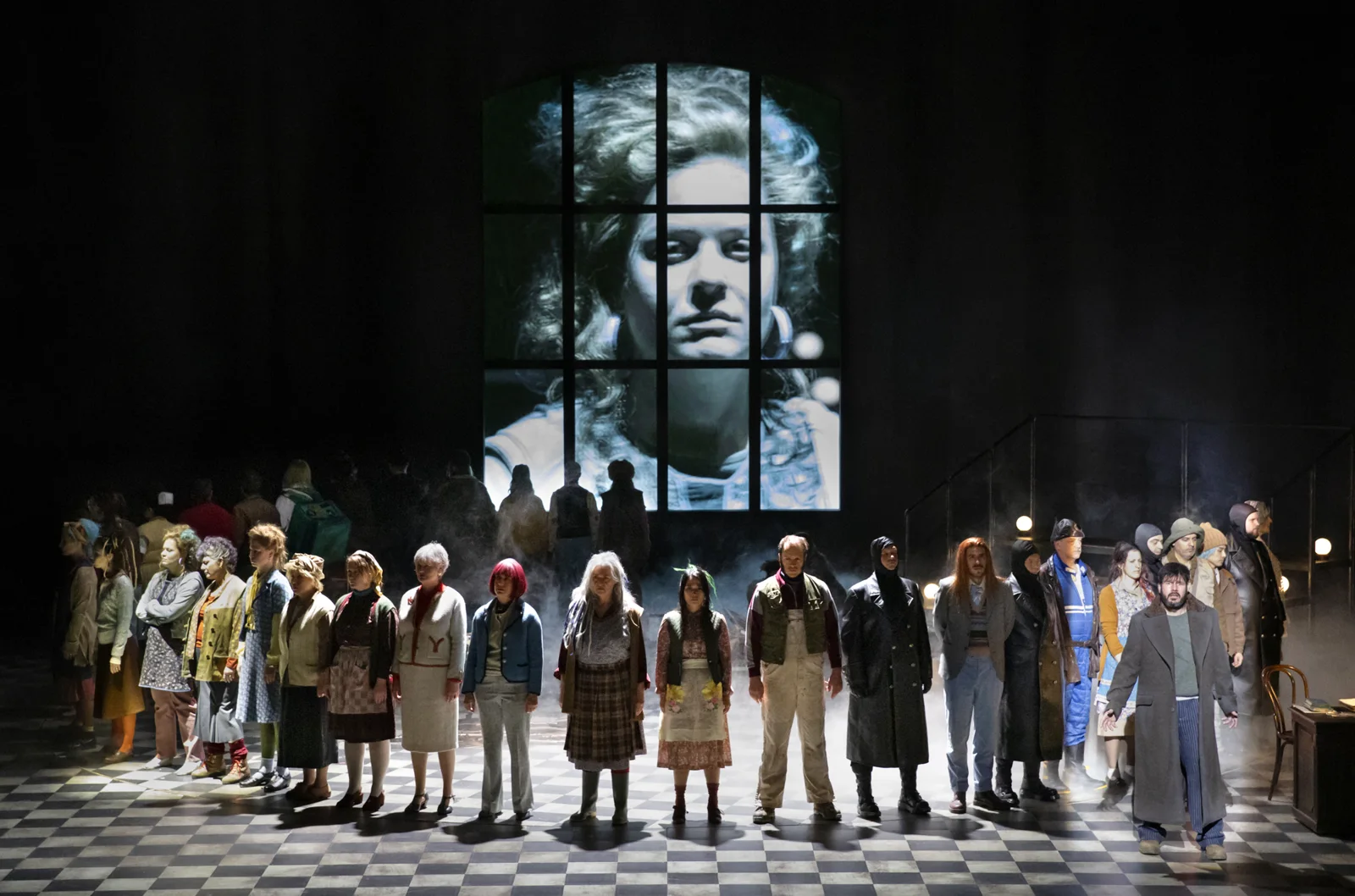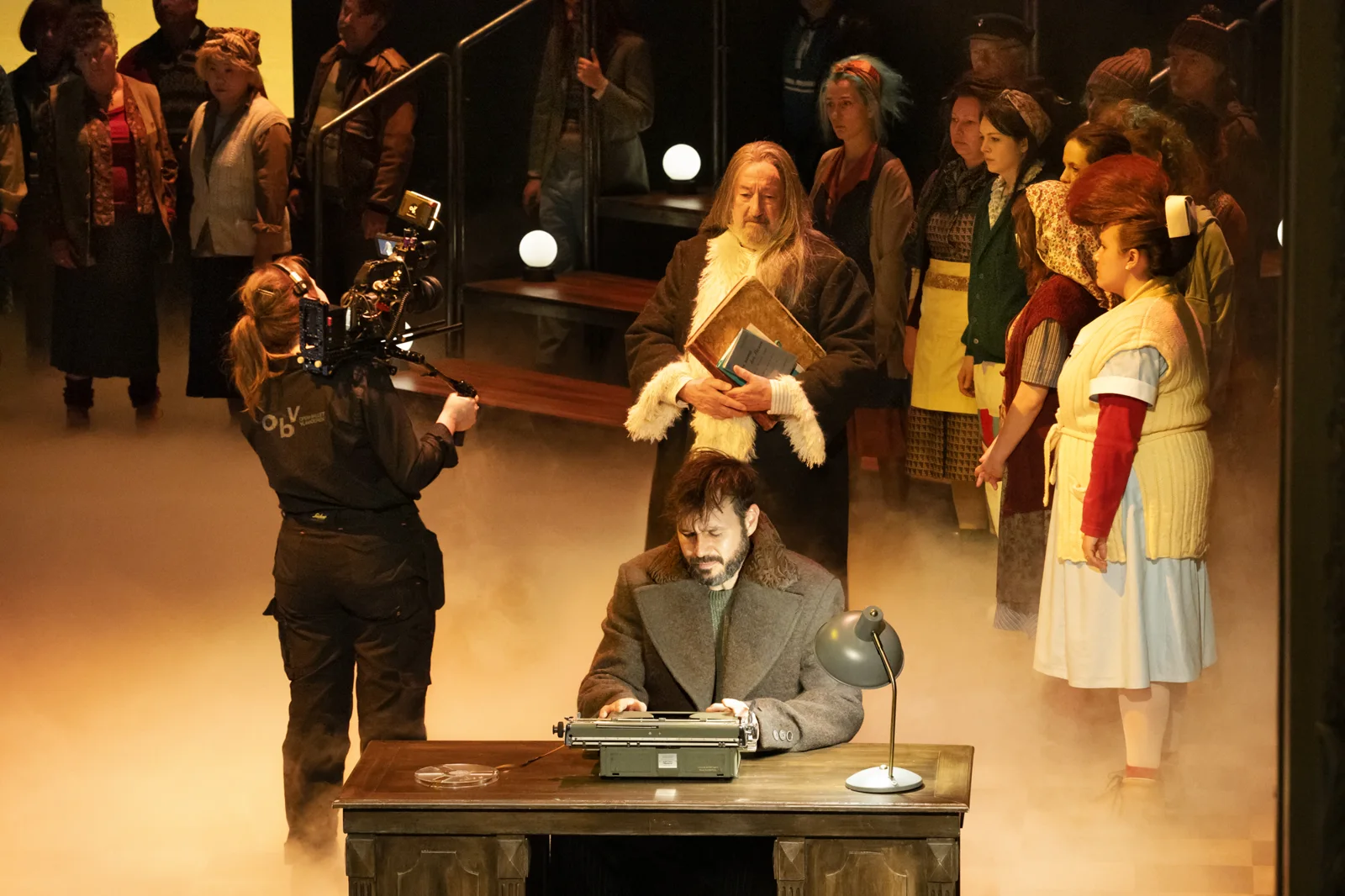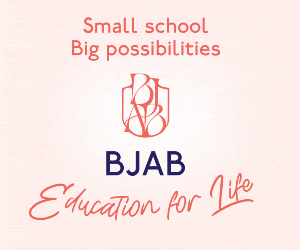‘Brodeck’ is an adaptation of Philippe Claudel’s novel Brodeck’s Report. The critically acclaimed novel, published in 2007, has been adapted into a graphic novel (Manu Larcenet), a play (Valerie Zipper, La Compagnie du Chien Jaune) and now an opera. Ahead of its premier in Opera Antwerpen (9 February), Claudel, composer Daan Janssens, and director Fabrice Murgia, discussed the book and the opera with Opera Vlaanderen’s Artistic Director, Jan Vandenhouwe.
The story
A stranger, ‘The Anderer’ (the other), arrives in a village. He moves among the villagers, sketching, getting to know them, then after showing an exhibition of his work the villagers turn against him and he is murdered in the local inn. Brodeck arrives at the inn to get some butter, he is charged by the mayor with writing a report to “understand and forgive”. The story is a series of flashbacks to the Anderer’s story and Brodeck’s – who was also “othered” by the same villagers. As grim as the story is, there remains a germ of hope in Brodeck’s departure for a new life, with his wife Emélia (Elias Soster) and daughter Poupchette (Susan De Ceuster/Fay Huygen).
The writer
Claudel said that he wrote Brodeck to reply to a question that he had asked himself since his childhood: “How can some people decide to exterminate others?” This was a question that he grew up with, his mother told him how she had lost two jewish friends who suddenly disappeared from school during the war never to return, since then Claudel has read and tried to understand how the Shoah could happen. His book was also influenced by the war in ex-Yugoslavia in the nineties, where people who had lived as neighbours suddenly turned on each other. There are certainly many aspects that seem to lean on WWII, but the author was adamant that the work should not be fixed in place or time; in fact, it was the one condition he set for the adaptation, otherwise the composer and librettist were given full liberty to interpret the story as they saw fit.
The composer
Composer Daan Janssens explained how the novel spoke directly to him and in a very musical way: “The novel has always stayed in my head and when Fabrice Murgia suggested a new project, its musical qualities, its play with time, its depth and links with nature made it a very interesting choice”. Vandenhouwe also welcomed the idea: “I was not only immediately convinced by the qualities of the artistic team, but also by the book itself. The dark parable about war, xenophobia and memory clearly resonates with current events. The story of Brodeck calls on us to examine how we as a community, as both victim and perpetrator, deal with traumatic, violent events of the past.”
While both Janssens and Murgia were inspired by the original book, it was Manu Larcenet’s adaptation into a graphic novel in 2015 that convinced them that it would work well as an opera. Murgia said it helped the artists to see the story’s rhythmic quality; Larcenet’s visual depictions also guided the opera’s visual identity.
The production
Opera Vlaanderen take pride in their commitment to new works. In 2021, their production of De bekeerlinge (The Convert) by composer Wim Hendrickx (1962 – 2022) was a huge success showing that there is an audience for new contemporary pieces and not just the great classics. The chief conductor, Marit Strindlund, has a particular feel for more contemporary operatic works.
The staging uses several devices. Live onstage camera projections give the feel of a documentary being pieced together, with close ups, flashbacks and exchanges as Brodeck gathers his evidence and documents. This never feels gimmicky. “We take the perspective of the chronicler, we can zoom in on characters, we can bring the report to life”.
The Anderer is seeminlgy a benevolent and enigmatic figure, a man of few words who is observing the villagers and discretely sketching portraits. Those few words are spoken by an actor (Josse De Pauw) rather than sung, emphasizing his otherness. His presence is given an other-worldly aura created by the harp, vibraphone and celesta. The portraits are windows to the damaged souls of the villagers and a past they want to escape from; his observations lead to his undoing. In the exchange between Brodeck (Damien Pass) and Peiper, the priest (Thomas Blondelle, who also plays Gobbler) recounts how he will keep the secrets of the confession, but shares that the confessional has been used as a sewer for their waste to alleviate the villager’s guilt.
Janssens describes the music as being almost Wagnerian with various motifs and instruments assigned to each character. Janssens had specific singers in mind when he was writing the music, which is why it is particularly important to see this production. Elias Soster as Emélia has a particularly beautiful voice, Blondelle’s performance and Féderine (Helena Rasker) were also remarkably strong, but this is an ensemble cast.
‘My name is Brodeck and I had nothing to do with it’
Brodeck is a reluctant narrator, he insists that his studies were about observing nature rather than storytelling. He has a touch of Wozzeck about him; the composer acknowledged that Berg’s opera influenced some elements of the music. Brodeck tells us at the beginning and reminds us at the end that he had nothing to do with it, while also beseeching us to remember.
With violent conflict in Ukraine and Gaza, one feels that we don’t need any reminders of the horrors of war when we are seeing it in realtime through social media. In one of the early scenes, Brodeck recounts being told that he was no longer a man, but ‘Chien Brodeck’. Returning from the opera I read a tweet about a doctor in Gaza, Dr Mohamed Abu Salmiya: “Soldiers broke both his hands as they forced him to walk like an animal on all fours. They put a chain around his neck and dragged him in front of people. To feed him, they made him eat like a dog in front of everyone”.
De grâce souvenez-vous.
Can’t make it to Antwerp or Gent? The performance on 20 February will be broadcast live on Klara.


